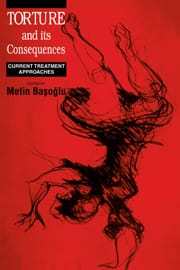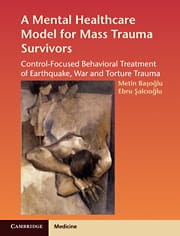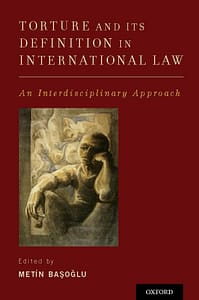Torture
- A learning theory approach to deprivation of liberty through imprisonment: Implications for definition of torture in international lawby Metin BaşoğluAbstract In my 2017 book on Torture and Its Definition in International Law: An Interdisciplinary Approach I presented a learning theory formulation of torture to highlight its core definitional characteristics from a behavioral science perspective. These include a) exposure to unpredictable and uncontrollable stressors that pose a risk of helplessness and hopelessness responses and b) such exposure takes place in a setting where the person is under the physical control of others or occurs as a consequence of actions who are in a position to exercise authority or control over the person. Based on a contextual, cumulative, and risk-based approach… Read More ›
- New bookby Metin BaşoğluTORTURE AND ITS DEFINITION IN INTERNATIONAL LAW: AN INTERDISCIPLINARY APPROACH Edited by METİN BAŞOĞLU Oxford University Press New York, 2017 This book presents an interdisciplinary approach to definition of torture by a group of prominent scholars of behavioral sciences, international law, human rights, and public health with internationally recognized expertise and authority in their field. It brings together behavioral science and international law perspectives on torture in an effort to promote a sound theory- and empirical-evidence-based legal understanding of torture. The book consists of four parts. The behavioral science perspective in Part I includes a learning theory formulation of torture,… Read More ›
- Definition of torture in United States law: Does it provide legal cover for “enhanced interrogation techniques”?by Metin BaşoğluAbstract The overly restrictive US definition of torture set forth by the “torture memos” in the early aftermath of 9/11 has been widely criticized for excluding “enhanced interrogation techniques” (EITs) and thereby creating loopholes for impunity. In the light of the US Senate Intelligence Committee Report on CIA’s detention and interrogation program confirming the use of EITs to induce “learned helplessness” in detainees, this article reviews the scientific basis for the US definition of torture and its interpretation in the “torture memos.” These memorandums clearly indicate that EITs are designed for use in combination with specific intent to induce learned… Read More ›
- Waterboarding is severe torture: Research findingsby Metin BaşoğluIn my previous post I reviewed the misconceptions that characterize the debate on torture renewed by the movie Zero Dark Thirty and presented some research evidence showing that waterboarding is one of the most physically and mentally distressing forms of torture. In this article I expand on the issue of waterboarding and review further evidence that has not been previously published. To add some touch of ‘human interest’ to this post I will also tell the story behind the research that generated this evidence and why such important evidence remained unpublished to date. Until the early 1990s there were few… Read More ›
- Zero Dark Thirty: The unbearable lightness of the torture debateby Metin BaşoğluThe debate on whether torture works is once again revived, this time by Kathryn Bigelow’s upcoming film Zero Dark Thirty. The responses to the film vary. Frank Bruni of the New York Times, summarizes the movie’s basic message as “no waterboarding, no Bin Ladin” and concludes that it does not “reflect many experts’ belief that torture is unnecessary, yielding as much bad information as good.” MSNBC Morning Joe host Joe Scarborough disagrees by arguing that the information leading to Bin Ladin was obtained through waterboarding. He believes that indiscriminate drone strikes killing civilians “are a little rougher than waterboarding three terrorists” and therefore… Read More ›
- Prevention of torture and rehabilitation of survivors – Review of the UN Committee against Torture Working Document on Article 14: Convention against Torture and other Cruel, Inhuman or Degrading Treatment or Punishmentby Metin BaşoğluI have recently received a copy of a paper presented at the 12th European Conference on Traumatic Stress in Vienna in June 2011 by psychologist Nora Sveaas from the Department of Psychology of University of Oslo. Dr. Sveaas is also a member of the UN Committee against Torture (CAT). Her paper (entitled Gross human rights violations and reparation: rehabilitation as form of reparation under international law –challenges and approaches) deals with the important issue of redress for survivors of torture and reviews aspects of the CAT Working Document on Article 14, which has been posted in the CAT website for… Read More ›


